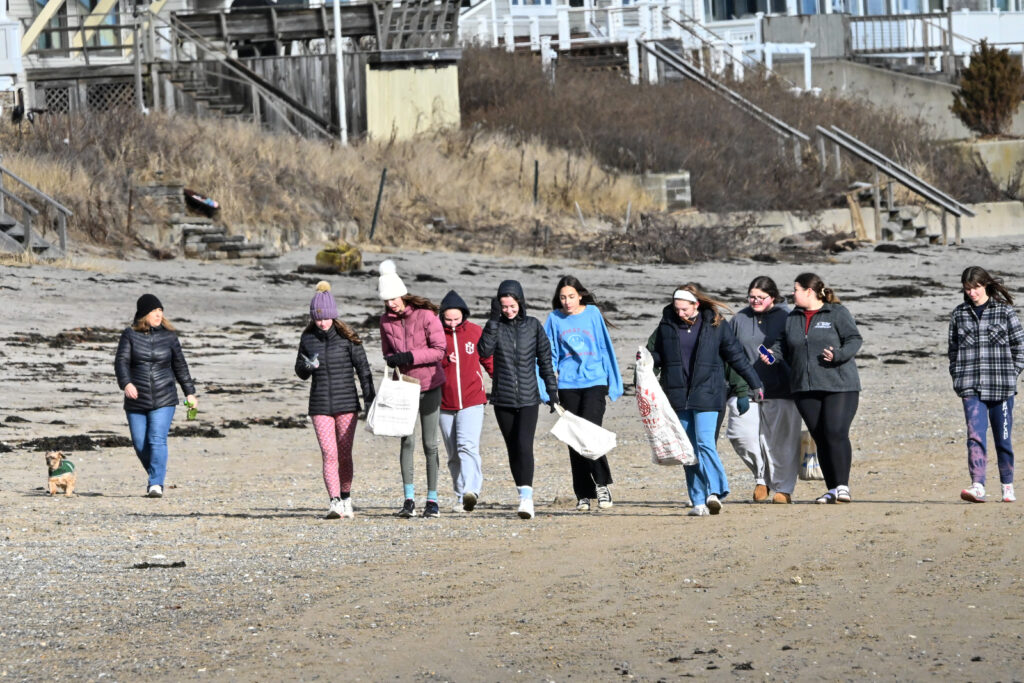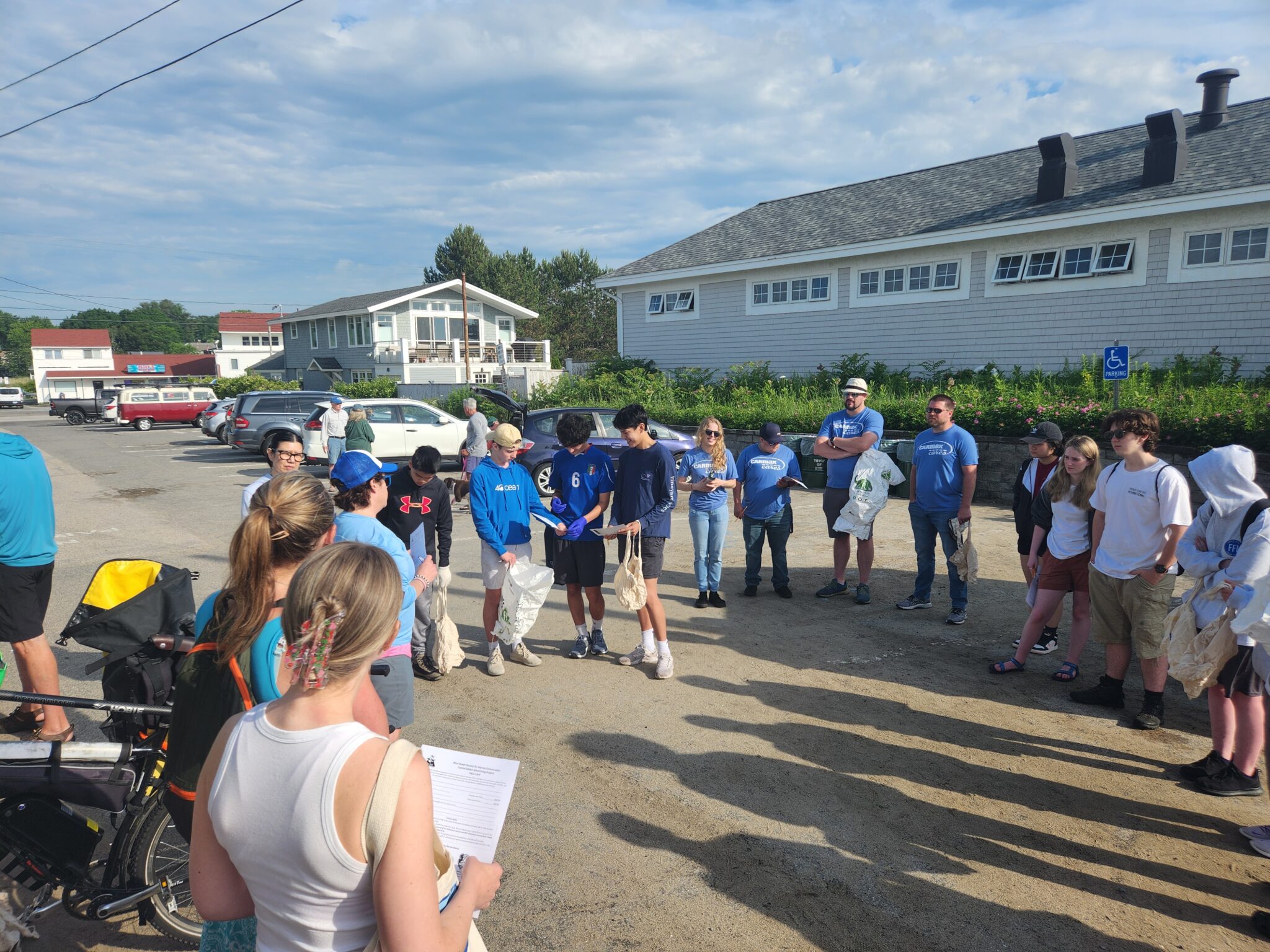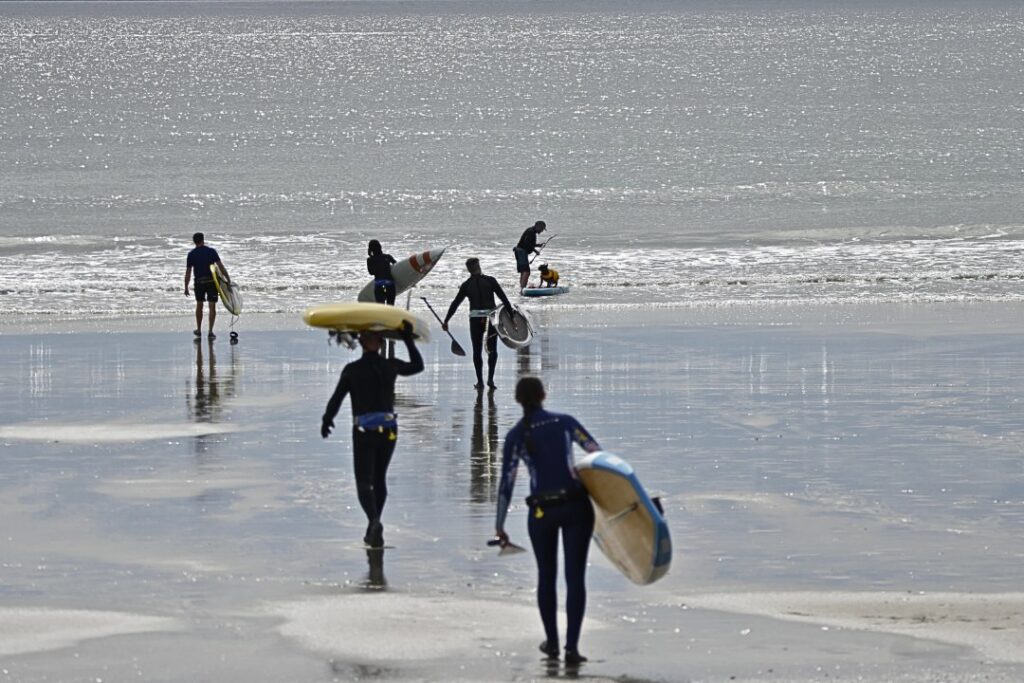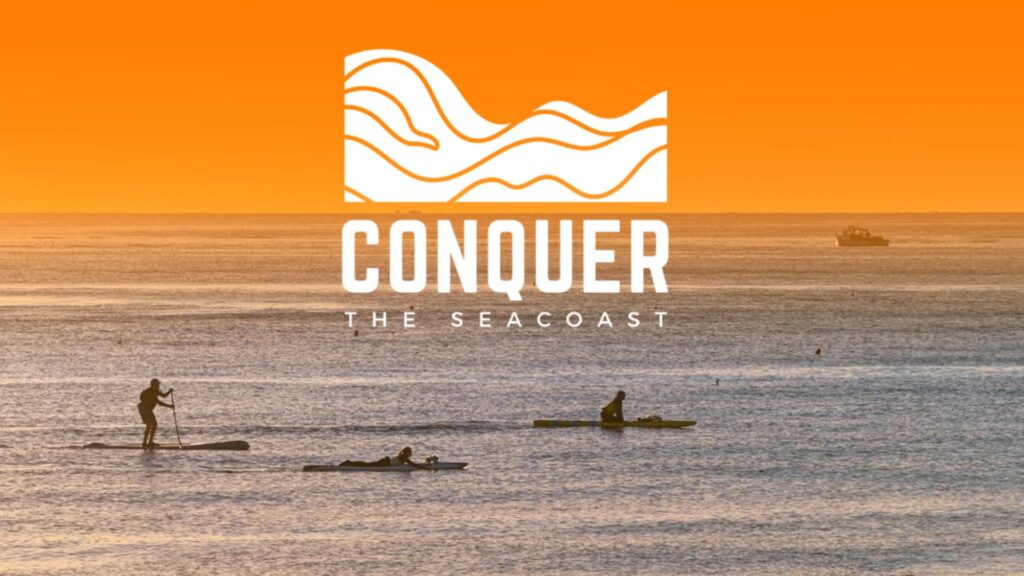How to Host A Beach Cleanup

Written by Jack Ventura
This month's guest blogger, Jack Ventura, is the founder of Faro Board Bags and an avid supporter of the Seacoast Paddleboard Club. We encourage our members to check out www.faroboardbags.com
As surfers and paddleboarders, we are the stewards of the sea. We are some of the most intimate admirers of the ocean, and because of our addiction, we get to experience her beauty up close. But with the increasing concern for our environment, it’s not enough to enjoy the sea—we need to protect it.
Hosting a beach cleanup is a fantastic way for ocean enthusiasts to give back to the places that give us so much. In this blog post, we will walk you through the steps on how to host your first beach cleanup so that you can transfer your love of the water into actionable change for our oceans.
“But with increasing concern for our environment, it’s not enough to just enjoy the sea—we need to protect it.”
Jack Ventura
10 Steps to Organizing a Successful Beach Cleanup
Step 1. Pick a Beach
Start by researching nearby beaches or coastal areas that are in need of some TLC. Look for spots with high foot traffic and potential for trash accumulation, such as popular surfing or sunbathing locations.
Before the cleanup, it’s a good idea to visit the site to evaluate its accessibility, parking options, and any specific rules or regulations in place. This pre-visit will help you plan effectively and avoid any last-minute surprises. You may also consider reaching out to local authorities or environmental organizations for their insights and recommendations on suitable cleanup sites. Choosing a site with visible pollution can significantly amplify the impact of your efforts.
Step 2. Choose Your Event Date
Step 3. Appoint a Cleanup Leader
Choosing the right person to be in charge of the cleanup is crucial for the success of the event. This individual should be organized, responsible, and able to delegate tasks efficiently. Look for someone who is passionate about environmental conservation and can motivate others to participate wholeheartedly.
Selecting a leader who can effectively communicate instructions and goals to volunteers is key. They should also have good problem-solving skills in case any challenges arise during the clean-up process. It’s important that this person leads by example, showing dedication and enthusiasm throughout the event.
A capable leader overseeing the beach clean-up will help ensure everything runs smoothly. So, take your time selecting the right individual to lead your beach cleanup efforts!
Step 4. Make A Plan
Set clear goals for the event – whether it’s collecting a certain amount of trash or engaging with a specific number of volunteers.
When planning the cleanup’s logistics, consider factors like timing, weather conditions, and accessibility. Map out areas that need attention and divide tasks among volunteers to ensure the event’s efficiency.
Communication is key to any successful plan. Establish channels for coordinating with volunteers, assigning roles, and providing necessary information beforehand. Ensure everyone understands their responsibilities and knows how to report back during the cleanup.
Flexibility is important in your planning process. Be prepared to adapt to unforeseen circumstances or changes on the day of the event. Having contingency plans in place will help you navigate any challenges that may arise smoothly.
An organized and well-thought-out plan sets the foundation for a successful beach clean-up that can make a real difference in protecting our oceans and marine life!

Step 5. Recruit Volunteers
Spread the word through social media, local community groups, and schools to attract individuals eager to make a difference. Encourage friends and family members to join in and help recruit others who share the same commitment to keeping our beaches clean. Remember, the more hands on deck, the bigger impact we can make together.
By forming a dedicated team of volunteers, you can ensure that your beach cleanup runs smoothly and efficiently.
Step 6. Gather Supplies
Before the event kicks off, assess what you’ll need to make the cleanup efficient and successful. Remember, the goal of a beach cleanup is to remove trash from the beach, so it can be considered hypocritical to wear plastic gloves and use plastic trash bags to gather garbage. When collecting garbage, use reusable items like gardening gloves and bags made from materials like grain or canvas. This way, you’re not adding to our problem.
Here is a list of supplies you will need to host a successful beach cleanup:
- Gloves: sturdy gloves are a must-have for volunteers to protect their hands while picking up debris.
- Trash bags and bins: use these to easily collect the waste gathered from the beach.
- Sunscreen: Use sunscreen to protect yourself and your volunteers from the sun’s UV rays throughout the day.
- Water: Encourage the use of reusable water bottles and bring a hydration station for people to refill their bottles throughout the day.
Depending on the size of your event, you may want to invest in tools like grabbers or rakes to assist in picking up larger or hard-to-reach items. Having a first aid kit on-site can ensure quick response in case of any minor injuries during the cleanup effort.

Step 7. Establish Cleanup Partnerships
Having event partners can significantly improve the success of your initiative. Collaborating with like-minded organizations or businesses can broaden your reach and resources.
Partnering with local environmental groups, schools, or even companies that promote sustainability can help you attract more volunteers and gather additional supplies for the cleanup. It’s also an excellent opportunity to network and build lasting relationships within the community.
Event partners can also help by donating water, food, and supplies needed for your beach cleanup.
Step 8. Have a Waste Disposal Plan
You’ll need to figure out how you will handle the collected trash in an environmentally friendly manner.
Research local recycling centers or waste management facilities where you can properly dispose of different types of materials. Some items may be recyclable, while others may need special handling.
Consider renting dumpsters or bins for the event to ensure that all waste is contained and disposed of correctly. Separate recyclables from general waste to minimize environmental impact.
Discuss with volunteers the importance of proper waste disposal and provide clear instructions on what goes where. Encourage everyone to pick up any litter they see, no matter how small.
By planning ahead and coordinating with local authorities or organizations, you can ensure that your beach cleanup leaves a positive impact on the environment.

Step 9. Have Fun!
Once you’ve concluded the event, pat yourself on the back and reward yourself for a job well done! Be sure to bring your surf and paddleboard equipment with you so that you can hit the water with your volunteers and have some fun. Please remember to keep your board(s) out of direct sunlight as the UV rays can damage your equipment. If possible, you should keep your surfboards or paddleboards in quality surfboard bag or a cover like the ones offered by FARO to ensure you don’t damage your gear while you’re busy cleaning.
Step 10. Host an Event Recap Meeting to Implement Improvements
A Final Thought
If you have any questions, always contact people who have conducted cleanups in the past. For instance, national organizations like the Surfrider Foundation or regional groups like the Blue Ocean Society and the Seacoast Paddle Board Club have been hosting clean-ups for years, and we are happy to provide guidance if needed.







